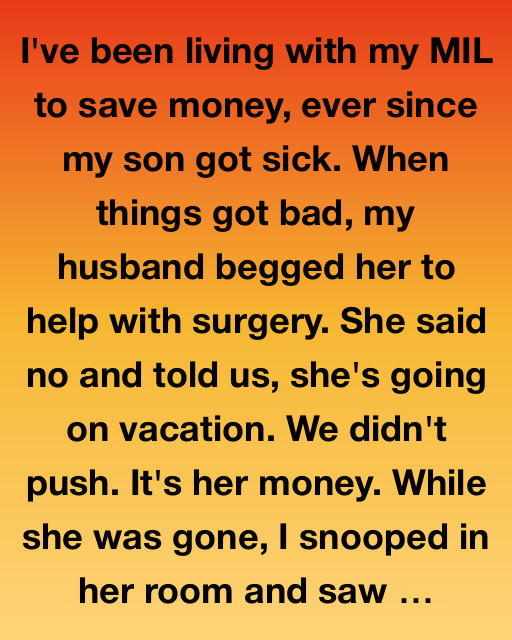We moved into my mother-in-law’s house when we had no other options. Our son was seriously ill, the kind of illness that devoured money, sleep, and pride. My husband and I were drowning on one income, rationing dinners with broth and sending awkward apologies to friends we owed. When we asked his mother for help with surgery costs, she refused. “I have to think about my retirement,” she said, then left for a vacation in Greece.
While she was gone, I found a suitcase in her closet packed with cash. I didn’t take a cent. But I stood there, heart pounding, asking a question that echoed through my bones: is my son not an emergency? When the hospital called with a donor match weeks later, she refused us again. We signed a crushing loan, sold what little we had, begged for help—and got our son into surgery. He made it. Slowly, beautifully, he healed.
Then my mother-in-law slipped and broke her hip. With nowhere else to go, she moved into our tiny rental. We cared for her the way we wished she had cared for us: gently, completely. One night she wept, admitting fear had made her selfish. Later, she repaid every cent. When she opened that suitcase on our coffee table and split the money three ways—us, her, our son’s future—she didn’t ask for forgiveness, just offered change.
She died years later with my son’s hand in hers. In her drawer was a note: “Fear made me selfish. But love taught me courage.” I’ll never forget that. People fail us in the worst moments, but some come back changed. If someone reaches for you—late, awkward, imperfect—leave the light on. And if you’ve been hurt, I hope you get your envelope on the pillow. Sometimes, redemption looks exactly like that.
